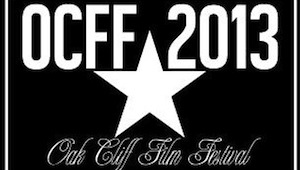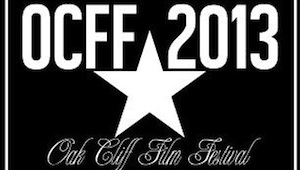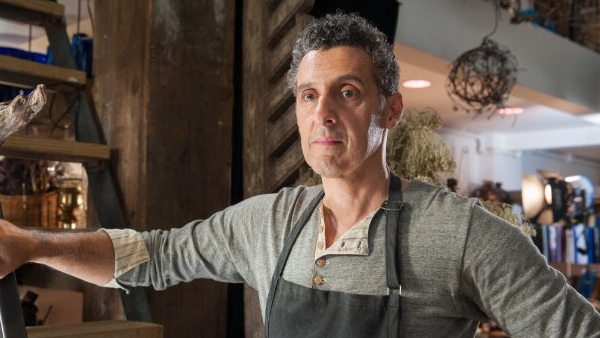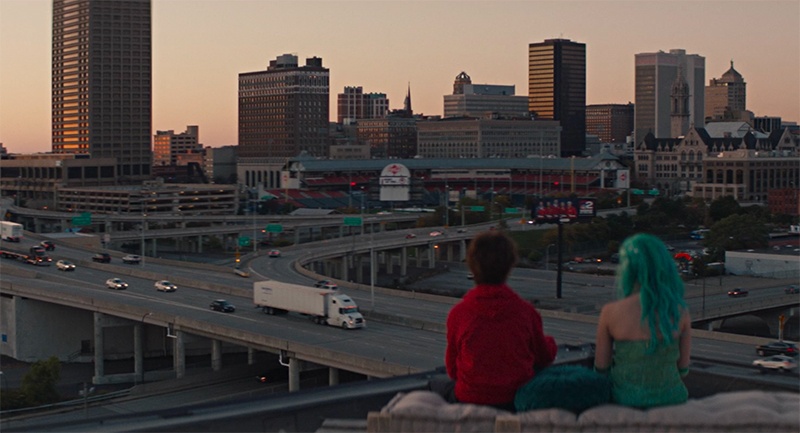This past weekend at the 2nd Annual Oak Cliff Film Festival, Andrew Cohn and Davy Rothbart’s documentary feature, Medora, about a small town in Indiana, won the Jury Award for Best Documentary Feature. The film, which premiered earlier this year at the South By Southwest Film Festival in Austin, follows the lives of the boys who make up the Medora Hornets, the local high school’s basketball team, as they attempt to end their three-year losing streak. The team serves as a symbol to the community, and their hope and determination parallels with that of the town itself, as it fights to stay alive.
____________________________________________________________________________________________________________
Check out the Medora trailer from the film’s Kickstarter page, and then see what the guys had to tell us about the film during our eye-opening and informative interview last week.
You’ve said this film about Medora is one you “were born to make,” can you talk a little bit more about your experience of that first visit to the city after reading the New York Times article, and how that helped to shape the subjects you decided to focus on in the documentary?
Andrew Cohn: There is such a beautiful stillness to small towns like Medora, Indiana. When we first visited Medora, we were in awe of both the beauty and the sorrow that seemed to encompass the town. While Medora (and towns like it) have gone through some tough times over the last couple of decades, there still remains a certain tranquility — it’s a place where everyone knows each other, help is never too far away, and everything and everyone has this sense of familiarity. We hoped to capture that feeling on film, and it was definitely deliberate. We never wanted the film to leave the town of Medora, so audiences would get a strong feel for what it’s like to actually live there. While we thought some outside perspective could give some meaningful insights to the issues explored in the film, ultimately we felt that hearing from the townspeople, players, coaches and parents would give the film an insider’s perspective on life in a small town, which became a goal of ours from that first visit.
When doing your initial research, did you have the opportunity to work at all with the journalist who wrote that original article, and does he know he helped to inspire you to make the documentary?
Davy Rothbart: We didn’t work with John Branch closely, but he’s aware of the film and has expressed his excitement about it. He recently won the Pulitzer Prize for his incredible reporting in the New York Times, and we’ll be super excited to finally share the film with him. We think he’ll really be pleased, as our film reaches deep into a world that he first took notice of and wrote about so eloquently. His short piece was certainly the inspiration for making this film.
SPOILER ALERT -The thing about documentaries is that you can only shape the film treatment so much, and then hope for the best. You said at the end of filming you had 600 hours of footage. Do you think you would have approached the final story differently if the Hornets hadn’t won their last game?
AC: We thought about that question as the season went on and the losses began to add up. What if they didn’t win a game? Was there some way we could spin it? Some larger lesson about the value of striving for things , even if they remain outside your grasp? Thank God they actually won, because another winless season would have made for a tough arc for the film.
DR: Early in the season we were afraid they’d win a game too soon, and spoil the suspense. Then we started getting a little worried. What if they never won? Fortunately, they pulled out that game. If not, we would’ve had to pay the refs off to ensure a victory.
Sort of going off of that, can you talk about the documentary story-telling process a bit; what’s the most important thing – or the larger overall message – you hope to get across to audiences?
DR: We love telling personal stories. We’ve always made it our goal as filmmakers to focus on personal stories first, and let the themes and issues emerge form there. If you introduce a subject and let the audience know what that person wants, and what’s in his or her way, you have a emotional arc to base your film around. We were drawn to these characters’ soulful, resilient stories and felt that if we documented their individual experiences fully enough, the relevant themes and issues would also shine through. I think audiences will definitely come to understand the challenges facing people in small American towns by getting the chance to walk in our subjects’ shoes for a while.
A lot of the time documentaries like this one serve not only to inform but also to inspire the audience, or to create a desire for change, but is there any hope for places like Medora? If so, what do you think has to change, and what can people do (if anything) to help?
AC: Education and rural development are the two issues we hope to talk about as the film is released. Many of these small communities don’t have access to the same opportunities that folks in larger cities do. One of our goals as filmmakers is to bring awareness to these issues. Is there hope for places like Medora? Time will tell. Largely, we just wanted to capture a place and a way of life that seems to be fading away across this country, and to remind people of the value of small towns like Medora. Hopefully that will motivate people to take action. I wish there was a simple prescriptive answer for how to cure these ailing towns, but I’m not sure there is. It’s a very complicated issue, and a generational issue. Still, there are people working hard to find ways to sustain life in small towns across the U.S., so if we can be ambassadors for towns like Medora, and share the stories of the people who live there, we think people will feel moved to take an interest in doing what they can to lend support.
DR: As President Obama alludes to in the film, the global economy has certainly shifted, and small rural towns based on farming and small industry may no longer have a substantial role in the world marketplace. At the same time, my personal belief is that the issues here have more to do with our own country’s economic inequalities. Hopefully by sharing the stories of the brave people of Medora, viewers elsewhere will better understand just how hard these people work and just how much they give of themselves to support their families and communities. Someone is getting rich off of their low-wage labor; it’s just not them. How can we shift prosperity in this country so that the people who are breaking their backs daily actually share in the rewards of their labors? I hope people watching Medora ask themselves these kinds of questions when reflecting on the film.
___________________________________________________________________________________________________________
To learn more about the Festival, visit the Oak Cliff Film Festival homepage, or visit the official OCFF Tumblr page for more in-depth interviews.





2 Comments
Joyce Utterback
Can this documentary be purchased on a DVD?
Joyce Utterback
Very good film about what is happening to small towns and the changes that have come about with societal changes.